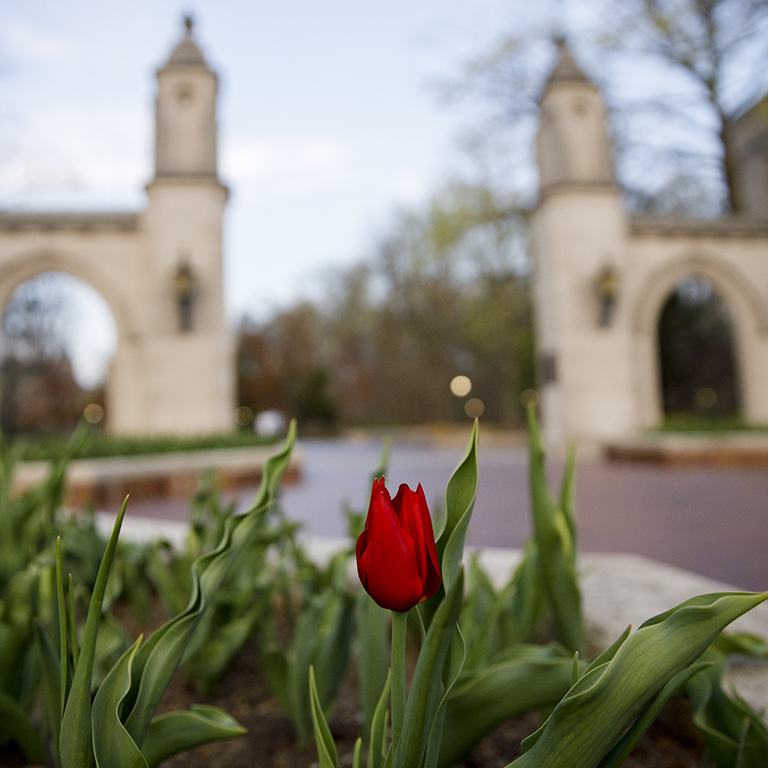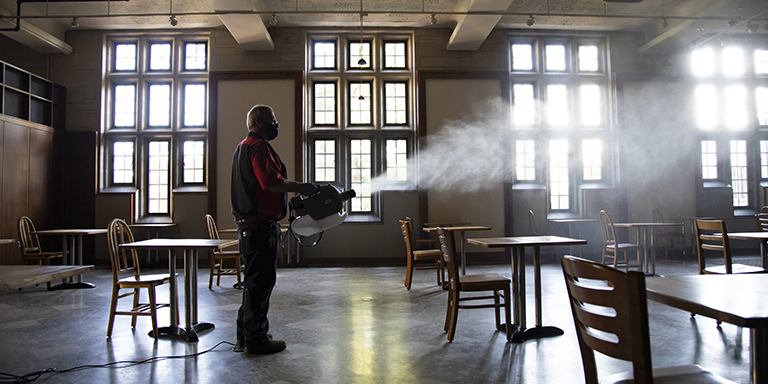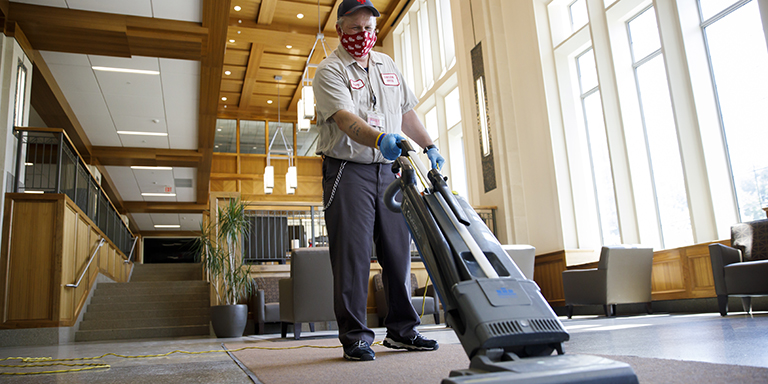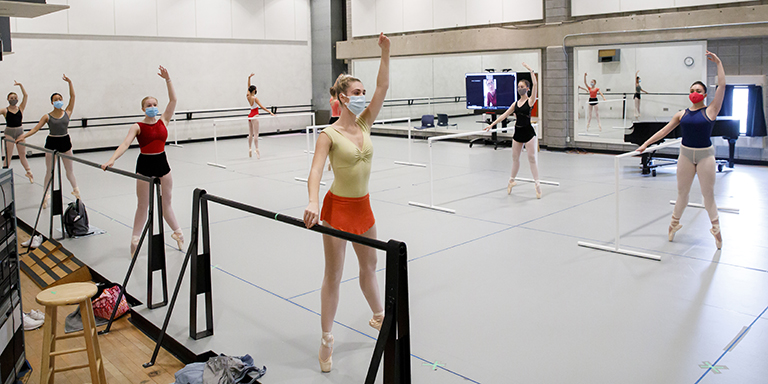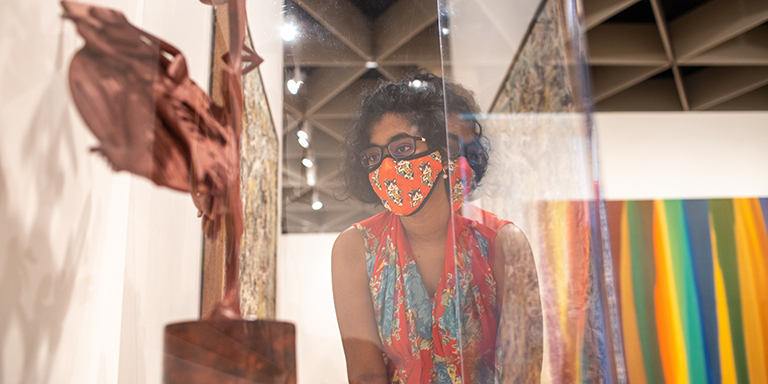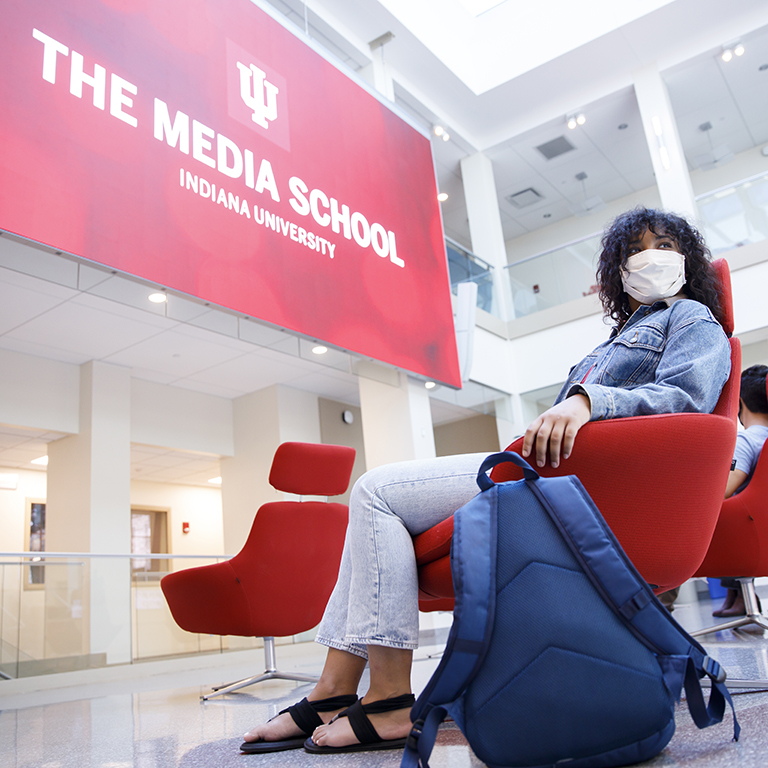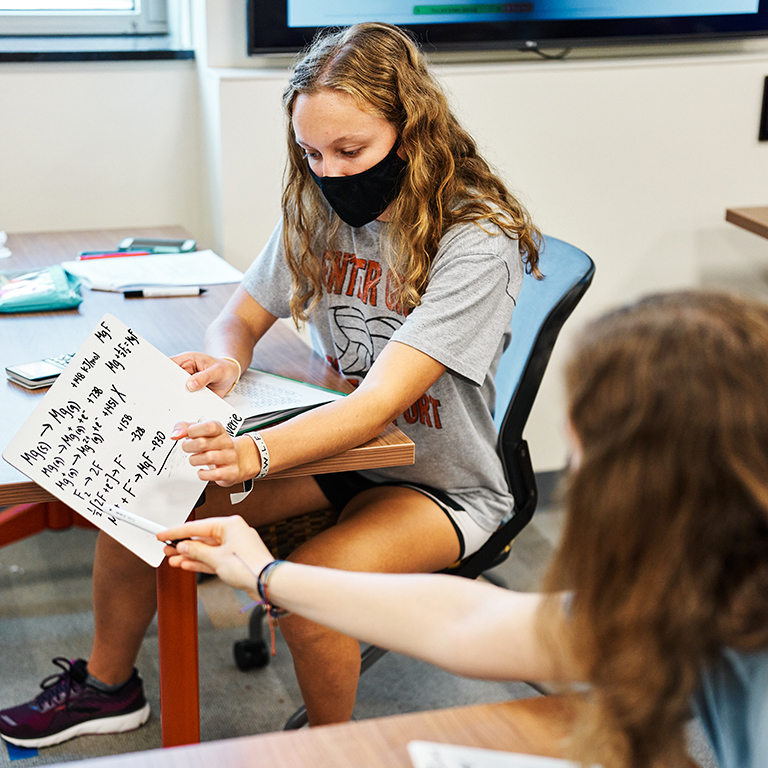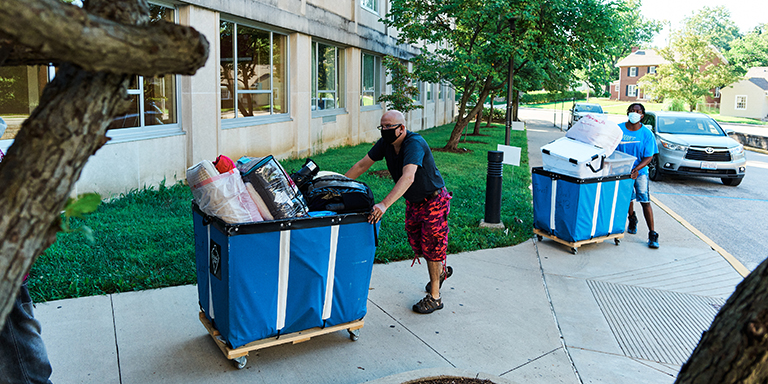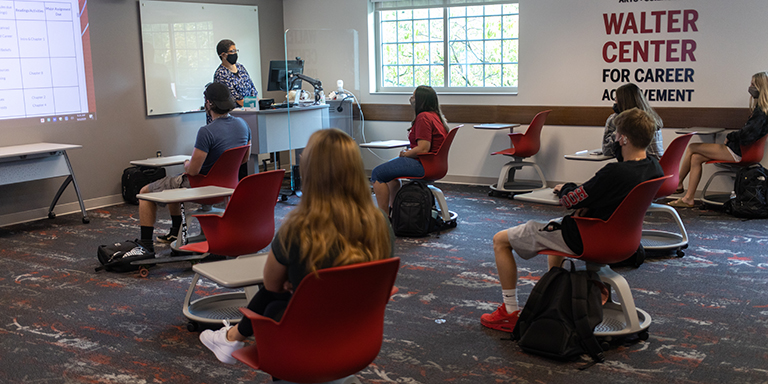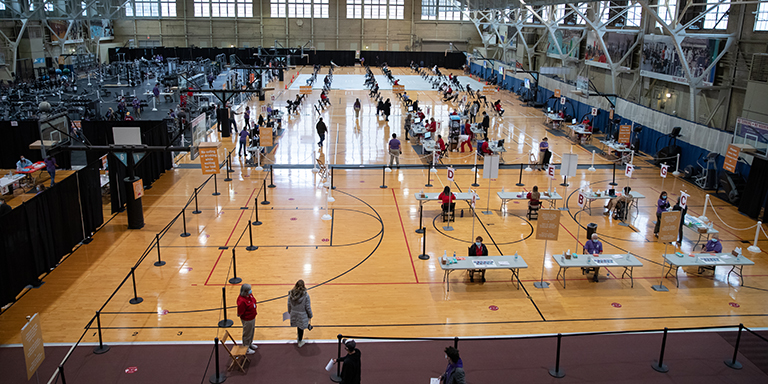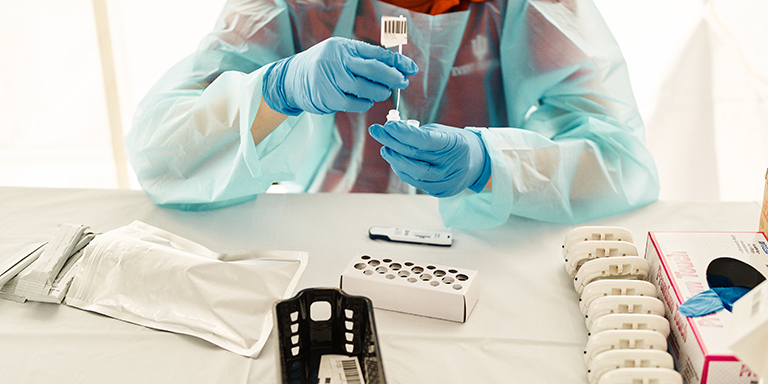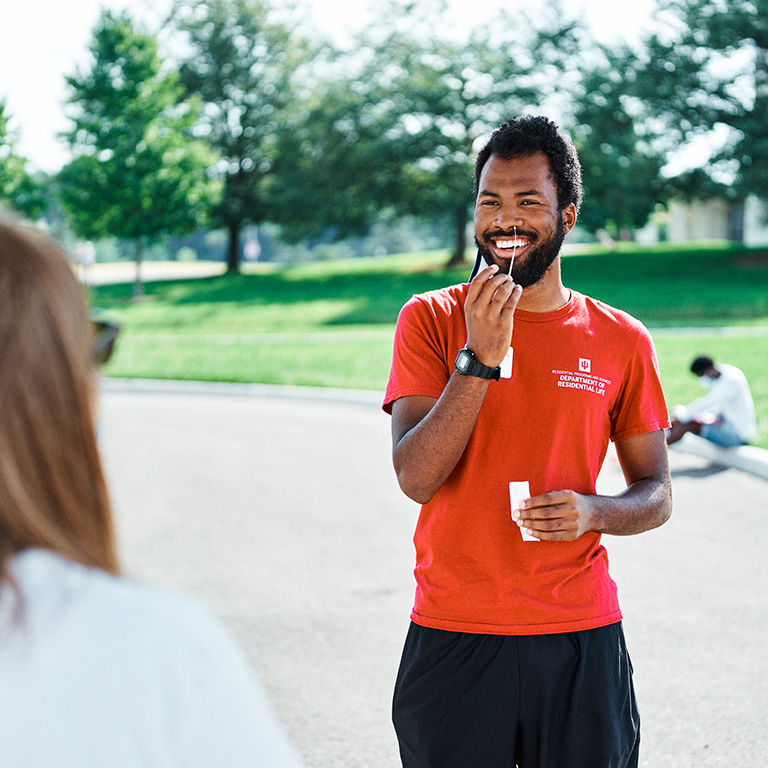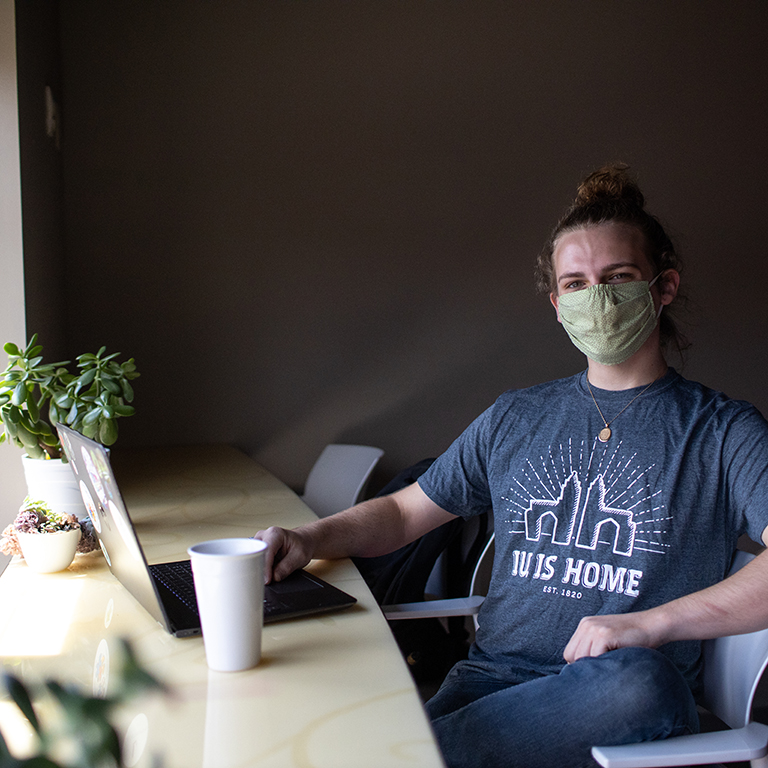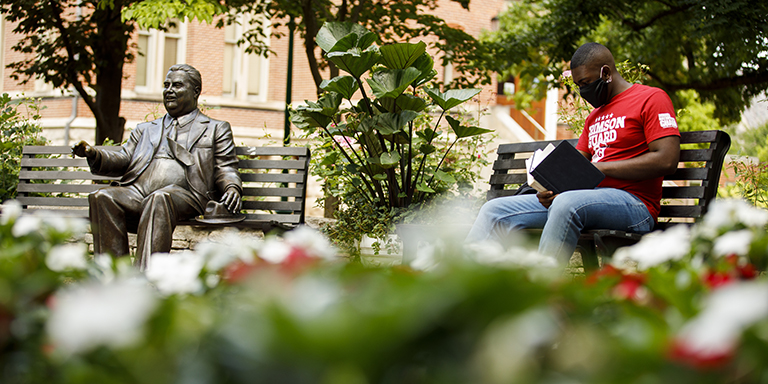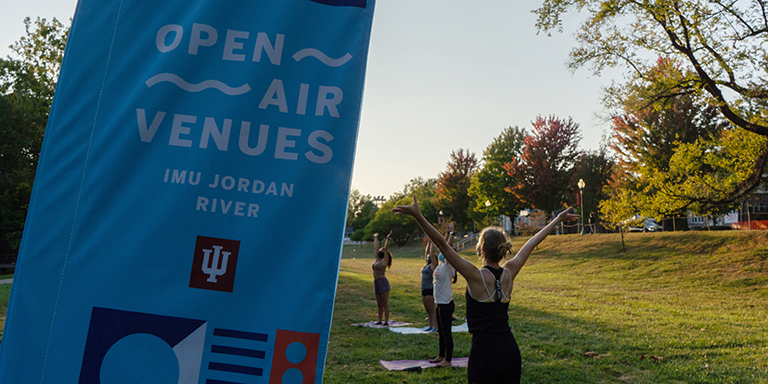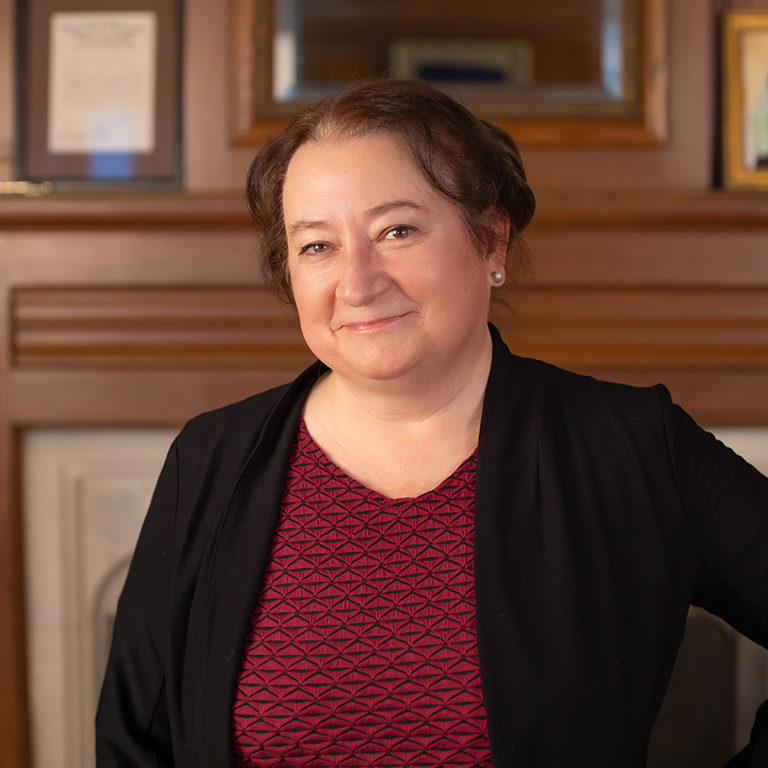Spring 2021 Commencement Speech
May 8, 2021
President McRobbie, Trustees, honored and welcomed guests, faculty, staff, family members, and our beloved students and graduates:
We first met at the start of your time at IU during Bloomington’s lovely convocation ceremony, and you have seen me since at events dedicating an astonishing number of new buildings during your time here, or congratulating you on your successes, or meeting with student groups. I will freely admit, however, that our most intimate relationship is, well… electronic. You have all, in your time here, gotten many, many—oh, so many! —emails from me.
I have written to welcome you back each semester, to wish you well in your work, to let you know how to find resources, to explain changes on campus or opportunities to engage with the arts or to volunteer or even to watch an eclipse. And I have written lengthy emails to you about other, much more serious, subjects: The First Amendment and controversial public art; ways of thinking about historical controversies manifested in our physical environment; the need to confront hateful ideas but preserve open discourse and tolerance; the importance of casting an informed vote and claiming your full citizenship in our democracy.
But I never thought I would send the email I sent in March of last year, advising you not to return to campus from your spring break because of the galloping devastation of the global pandemic. Nor did I ever expect to write the message that opened this year, one that began, “This will not be your typical welcome-back-to-campus letter.”
That message came in the middle of a hot and often acrimonious national conversation about reopening universities and colleges. Most of that debate last spring and summer was lopsidedly against reopening campuses. Some of the concern was about the lack of a testing infrastructure that could detect an outbreak, or a contact tracing system that could contain one if it happened.
But let’s be honest: Most of that discussion was about you. People watched the spring-break Florida beaches and predicted disaster. National television brought out experts to describe your petulant unwillingness—perhaps even your cognitive incapacity! – to do what was needed to open a campus safely. Pundits widely predicted you would fail to wear masks in class, even that you would do it intentionally and to make political points. “Colleges are Deluding Themselves,” a widely circulated Atlantic article flatly declared.
And yet, here you sit, in your caps and gowns, on the cusp of moving your tassel from right to left.
Why? Because the skeptics underestimated you, they underestimated us, and they completely missed what was at stake.
I’ll take that last point first. You will by now not be surprised to learn that I write emails to my colleagues as well. Lots of them. And in my email to the faculty and staff last summer, I started with first principles. IU Bloomington is a particular kind of institution, one that is comparatively rare in the broad ecosystem of higher education. Of the over 5,000 institutions of higher education, only 63 are classified at the highest levels of research, and we are among them. No one in any other sector of our world does the kind of work we do at research-intensive, residentially based universities. I believe so deeply in the mission of this kind of university that I, like many of my colleagues, have given my entire life to it. And the need to assemble, in person, defines a university committed to research and residential education.
On this campus, we do foundational research that advances the actual frontiers of knowledge, the kind of work on which all other advances are built. If humans solve the challenges posed by this virus, whether they be medical, social, behavioral, or equitable, it will doubtlessly be because of the foundations built within research universities like this one. Indeed, Thomas Brock, a professor of microbiology here in the 1960’s, made a discovery with the aid of his undergraduate research assistant that was essential to the invention of the process behind the gold standard in Covid-19 testing, the PCR test.
Much of what we do requires access to archives, studios, libraries, specialized equipment, collections, and laboratories—the very physical facilities that, with our classrooms, comprise a university of our kind. Without that access, much research grinds to a halt as does the education of the next generation of researchers and teachers, our graduate students. The creation of some kinds of knowledge stops altogether. The transmission of the skills necessary to create knowledge is seriously hampered. Much of what we lose is irretrievable, or retrievable only after making up for losses that could easily be measured in years.
In addition, this campus is founded on residential education. We believe in residential education because relationships among faculty, staff, and students catalyze intensive and powerful learning, for both undergraduate and graduate students. Students come from around the world to work with our faculty—particular faculty, actual individuals—and to study specific fields and disciplines that are unavailable elsewhere or available elsewhere with less quality and at greater cost. The communities of learning that we create and nurture on our campus are precious, and when you were forced from them that fateful spring, we were anguished to lose you.
For our students—for all of you— the necessary abandonment of our campus in the wake of the pandemic came with heartache and disruption that you well comprehend. I know many of you felt ripped from this community, your lives interrupted, and the lack of presence of your teachers and classmates a horrible loss that made a frightening and anxious situation harder to bear. That loss was absolutely necessary, and universities were leaders in this country in recognizing and acting on the risks. But we knew that by last summer, for you, our students, this pandemic had already been life-altering and life-defining, and a great many of you wanted desperately to return in some fashion.
Beyond that, there are classes, and even whole disciplines and fields, like studio art, science laboratories, and the performing arts, where the ability to do physical things using particular materials under expert supervision are at the core of advanced learning.
There were weighty values involved in deciding whether and how to bring our community back together again, and they were worth fighting for with every idea we could muster.



